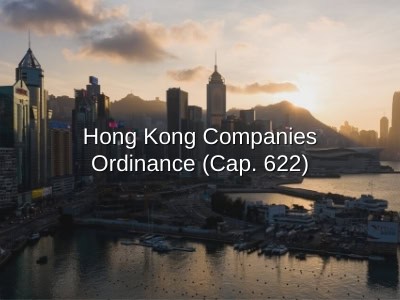This post is also available in:
![]() 繁體中文 (Chinese (Traditional))
繁體中文 (Chinese (Traditional)) ![]() 简体中文 (Chinese (Simplified))
简体中文 (Chinese (Simplified))
The New Laws Will Help Modernise Hong Kong’s Company Law
 For years, Hong Kong has been practising a pro-business environment for all traders, businesses and companies to do business in the jurisdiction. It is also a favoured gateway to Mainland China and China to the rest of the world. Its government has played an active role in encouraging local business scenes and investors from the global market. All these years, Hong Kong company incorporation was regulated by the old Companies Ordinance (Cap.32). With the Hong Kong new Companies Ordinance (Cap. 622), Hong Kong’s company regulation will be modernised and in line with global practice.
For years, Hong Kong has been practising a pro-business environment for all traders, businesses and companies to do business in the jurisdiction. It is also a favoured gateway to Mainland China and China to the rest of the world. Its government has played an active role in encouraging local business scenes and investors from the global market. All these years, Hong Kong company incorporation was regulated by the old Companies Ordinance (Cap.32). With the Hong Kong new Companies Ordinance (Cap. 622), Hong Kong’s company regulation will be modernised and in line with global practice.
Major Changes
The Hong Kong new Companies Ordinance (Cap.622) carries forward much of the old companies’ regulations ordinance. It has also introduced significant changes to company law. Most of which is an opportunity to change to a more straightforward concept of conducting business. The following are the significant changes companies incorporated in Hong Kong should note if they have not yet.
Primary Accounting Reference Period (PARD)
PARD also means the financial year of a company. The critical period refers to when an existing company closes its accounts. If their accounts close every the 31st of December, it begins the new financial year on the 1st of January of the following year. For new companies incorporated after the new CO became effective, the first accounting period begins on the incorporation date. It ends with a specific date or the company’s incorporation anniversary date.
Financial Reporting
A company must always keep its accounting records for seven years after the end of each financial year. It is the responsibility of the company’s director to prepare the financial statements every year. The director also needs to present the financial statement to the shareholders in the annual general meeting to get it approved. Once approved, at least two directors must sign the financial statement and have their names printed on the statement. For a sole-director company, the single director signs the financial statement and have his or her name printed on the statement. The new CO also provides for specific companies to have a simplified financial statement. Otherwise, all companies can prepare a full financial statement as it has a better value.
Annual General Meeting
The specific type of companies may hold their annual general meeting differently than others. For a private company or company limited by guarantees, their annual general meeting will be nine months after the end of their PARD. For other company types, they are to hold their annual general meeting six months after PARD. The company must issue and send out notice of the annual general meeting to its members and the auditors at least 21 days in advance. There are also circumstances where a company does not need to hold an annual general meeting. If the company has provided all documents to its members and have concluded everything in a written resolution, there is no need for an annual general meeting. A company does not need to hold an annual general meeting if the company has only one member.
Director’s Report
In the new CO, a company preparing the director’s report must now include a business review, unless the company is exempted. It should also contain the names of all directors in the group in a consolidated directors’ report. New disclosure requires the matters about directors resigning or not seeking reappointment, permitted indemnity provisions, and equity-linked agreements. Any director can now sign a director’s report after it is approved. The signing director’s name must be printed on the report.
Changes for the Better
These are among the changes that any companies to take note. There are more detailed changes that may baffle you as you begin to understand which section needs immediate review or not. We are more than happy to help you know every area of the Hong Kong New Companies Ordinance so that you can reap its benefits.



